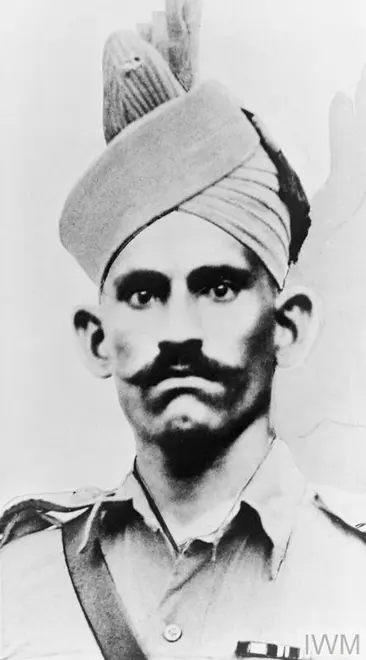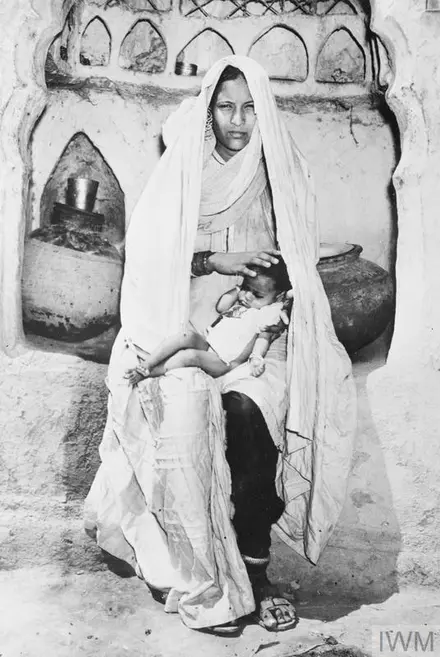Letters brought comfort to men and women in the Far East, many of whom were spending time away from their families for the first time.
The war kept men and women away from their families for long periods of time. For many this was their first time being away from loved ones and was a lonely experience.
For some soldiers communication was easy but for soldiers from pre-partition India it was not straightforward.
Many relatives at home were illiterate and relied on those soldiers to write letters to be sent back home, which would be read to them by a neighbour or friend.
Letters being sent back to families in India were written in several Indian languages – Tamil, Gurmukhi, Urdu, Hindi and Bengali.


Rao Abdul Hafiz Khan VC
For all men serving in the war, leaving families behind was hard. The separation was not easy on families left behind either, many wondered if their men would return and if they did return would they be injured.
The story of Rao Abdul Hafiz Khan, Victoria Cross recipient, is an example that men contributing to the war efforts could not guarantee that they would make it home.
Born on 4 September 1925 in Kalanaur village, Punjab. Naib Subedar Rao Abdul Hafiz Khan joined the Army as part of the 9th Jat Regiment, a mixture of Sikhs and Muslims.
Naib Subedar Khan was a Muslim. It was his efforts on the 6 April 1944 during the Battle of Imphal that made him an Indian recipient of the Victoria Cross.
When ordered to attack with his platoon a position held by the enemy, the only approach was across a bare slope and then up a steep hill.
Naib Subedar Khan killed several of the enemy with machine gun fire, but was injured himself. During the attack he was shot twice, the second gunshot killed him.
The Victoria Cross was awarded to his widow, Jugri Begum.
Naib Subedar Khan left behind a wife and a three month old daughter that he never got to see.
Poetry
For many men, letters were not the only way to express their feelings and emotions. There was also a range of poems written by men during the Second World War.
With the war stretched over the years, it was no surprise that loneliness would strike.
John Wedge was born in 1921. He served in the Royal Navy during Second World War, first as a telegraphist in minesweeper HMS Norse, then as an officer in HMS Worcester, Garlies.
His poem, Still no Letter, is a stark reminder that the war affected everyone and loneliness was felt by men and women.
Still no letter
There’s still no letter...
In my troubled mind
I seek a reason, and quickly reasons find,
Indeed they tumble in, to be discarded
Each as it comes.. It could be that
You’re very busy; missed the evening post;
Or else it’s held up in the mail. A host
Of explanations.. Yet that gnawing fear
O’errides them, still dunning at me that
You just don’t want to write. And vainly I
Attempt to thrust aside the thought; deny
It was with your last note, and the one before.
But no. I must resign myself to wait
Until tomorrow, or the next day and
A day. Surely then I see your hand-
Writing and envelope. And life is sweet, until
A week or so, when…
Still no letter
Men who did not join the war effort were considered cowards and Wedge voices the concern of no or little communication.
It was not just families at home waiting to hear; knowing what was happening to loved ones is what helped men in the trenches and battlefields.


